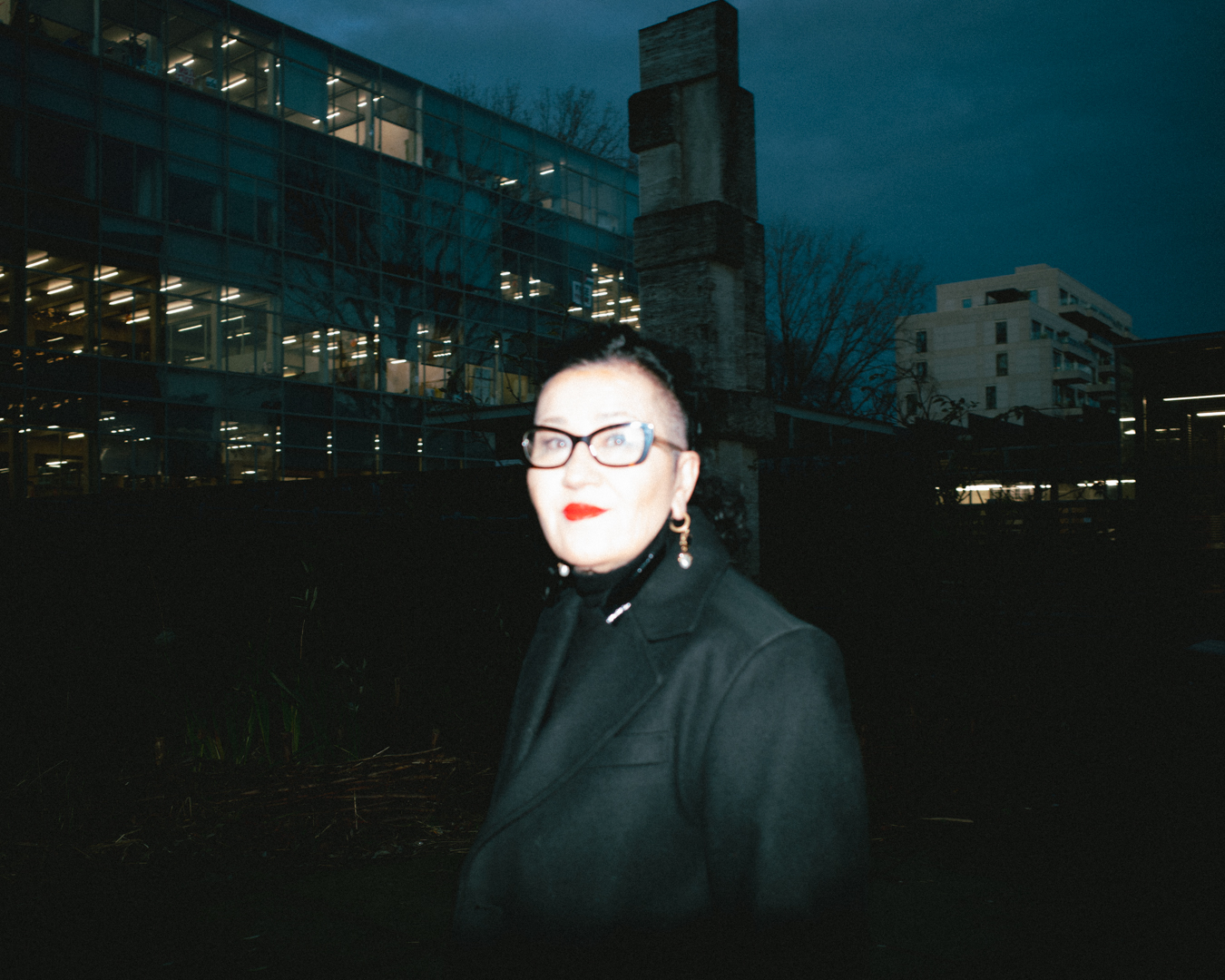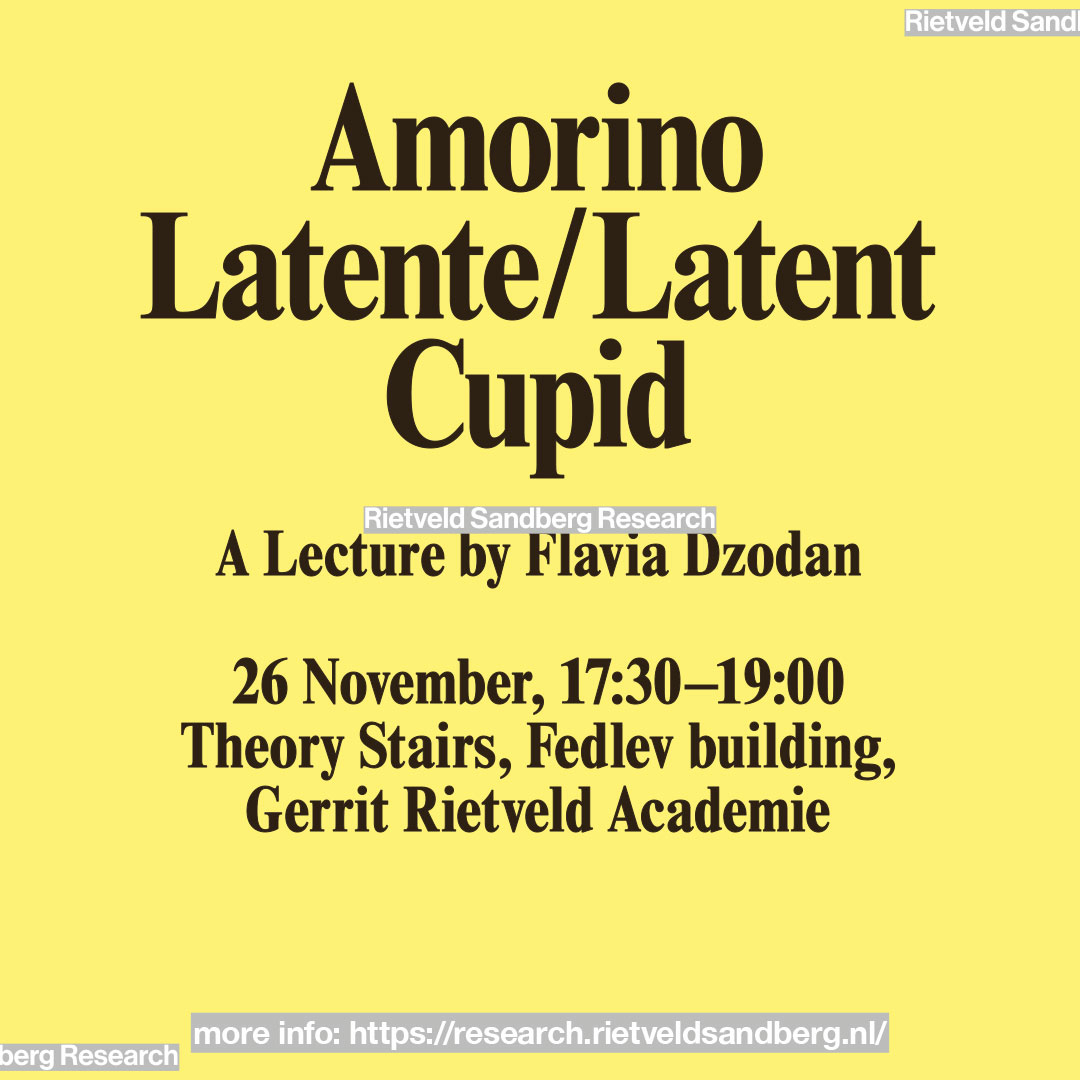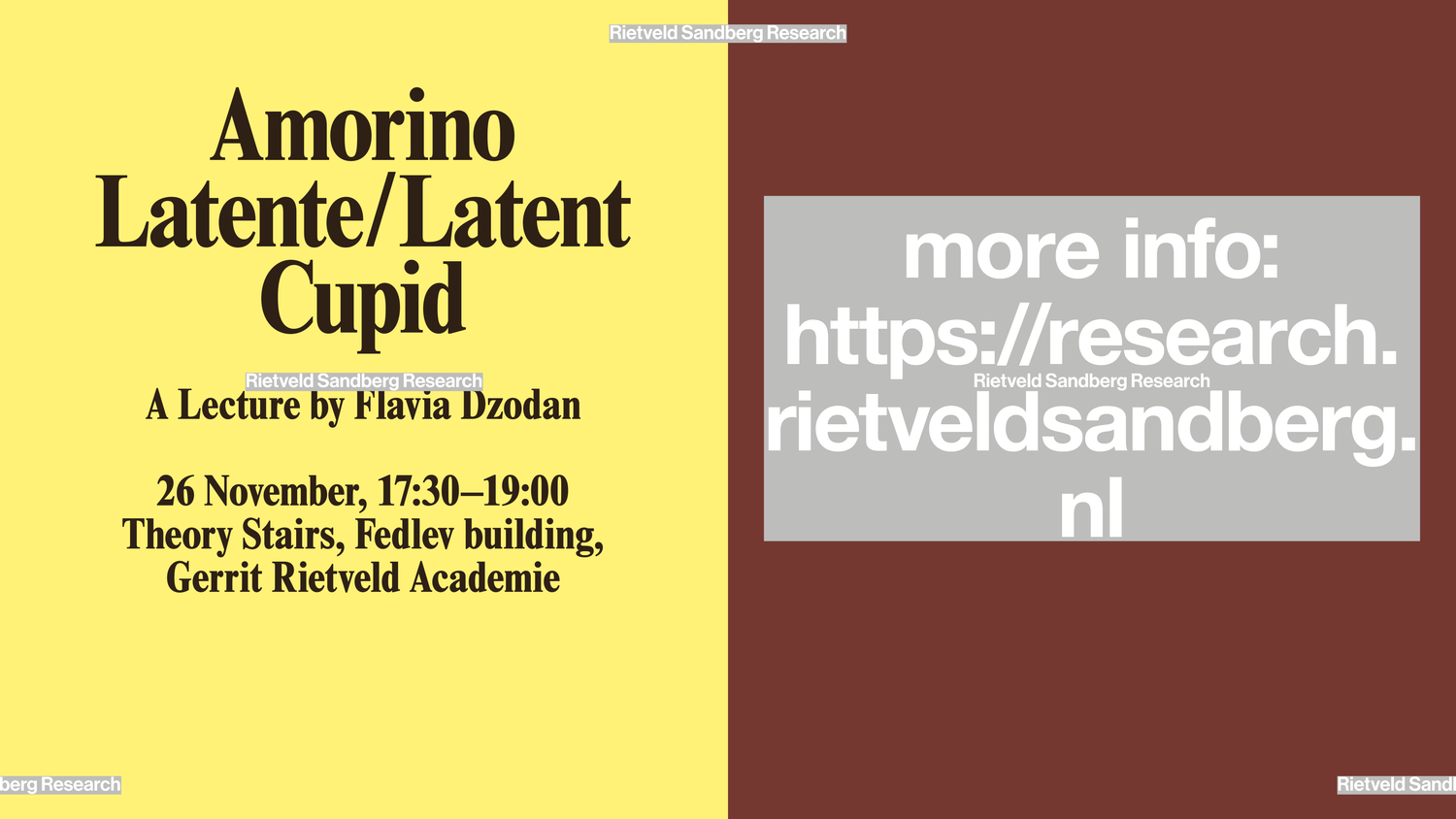
The Gerrit Rietveld Academie and Rietveld Sandberg Research are pleased to announce the appointment of Flavia Dzodan as Professor (Lector) of Algorithmic Cultures. Dzodan’s work marks a significant contribution to the GRA’s mission of fostering a research culture that embraces expansive, interdisciplinary, and non-traditional approaches, which reflect the complex and critical issues of our time. Her appointment underscores the GRA’s commitment to recognizing and supporting research practices that transcend conventional academic boundaries, weaving together theoretical exploration and artistic expression.
An Expanded and Inclusive Approach to Research
Flavia Dzodan, a respected educator, researcher and writer, has led research around Artificial Intelligence at the GRA since 2020 which was formalised as the Research Group on Algorithmic Cultures in 2023. Her unique approach can best be described as a critical “scavenging” of theory, constructing an intricate and incisive analysis of algorithmic systems and digital cultures, particularly at the intersection of race, gender, and colonial histories. Her work is unapologetically critical of digital tools, cultural products, and surveillance systems, scrutinizing how these carry colonial legacies into the present and future.
Dzodan’s practice extends far beyond traditional research. Her work integrates writing, publishing, sound and time-based media, and public engagement through a wide range of formats, from academic lectures and critical publications to public talks and collaborative artistic research. One current project, her co-supervision of the “Slow AI” research group, initiated in collaboration with the Hogeschool van Amsterdam (HvA), explores artificial intelligence from a critical perspective, challenging dominant narratives and questioning the socio-political impacts of AI (publication forthcoming).
Within the Rietveld and Sandberg community, Dzodan is recognized for her commitment to cultivating a vibrant student research culture. Through dedicated mentorship and her teaching roles across various departments, she has supported students in developing critical, informed, and socially responsive research practices. Through both her engagement with students and collaborators, Dzodan is dedicated to shaping an inclusive research culture that is intertwined with education. In this vein Dzodan is currently developing a research seminar series open for all staff and students titled Reading the Algorithmic Image that will take place from January through to April 2025.
Recognition in Academia and the Arts
Dzodan’s contributions have received significant attention both within and beyond academia. Her publication, The Coloniality of the Algorithm, has been cited globally in critical and scholarly publications, including Sara Ahmed’s Living a Feminist Life and the Nordic Journal of Feminist and Gender Research. Additionally, her expertise has been recognized at major events and institutions, including her lecture at the Design Biennial in Porto organized by the Papanek Foundation, and her participation in open talks and a public lecture at the Museum of Contemporary Art of Barcelona (MACBA), establishing her voice in critical debates on colonial histories and digital culture within an international museum context.
Dzodan will continue her work within the Research Group Algorithmic Cultures in her role as Professor (Lector), making valuable contributions to an understanding of digital cultures grounded in historical consciousness and critical inquiry. She also brings a commitment to working closely with the other two Professors (Lectoren) Patricia de Vries and Tom Vanderputte to further developing the Rietveld Sandberg approach to research that values alternative visions, embraces complexity, and questions hierarchies between practice and theory.
Inaugural lecture
Flavia Dzodan will hold her inaugural lecture on November 26th on the impossibilities of algorithmic translation. "Amorino Latente/ Latent Cupid” revolves around the translation of art and its emotional impact through algorithmic and computational processes. Drawing from Caravaggio’s Amorino Dormiente (Sleeping Cupid in English), the lecture explores how the diminutive form of "Amorino" conveys an intimate and emotional depth that is lost in its translation to "Cupid"—a generalized and commercialized figure. What is lost in translation then, operates as a mirror of the broader issue of how algorithmic systems flatten complex, affect-laden works into simplified, consumable data points.
We are very pleased to invite you to Flavia Dzodan’s inaugural lecture on November 26th from 5.30 to 7.00 PM at the Theory Stairs of the Gerrit Rietveld Academie. Please register here.

